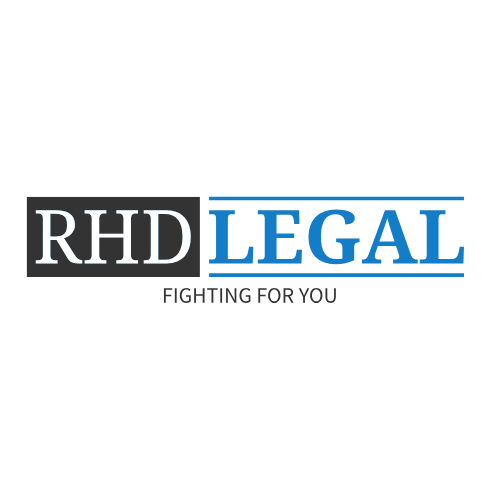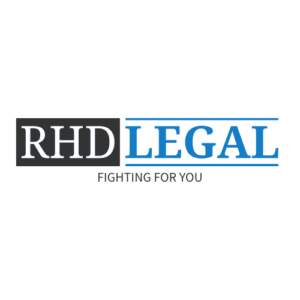In North Carolina, individuals who have suffered harm due to another party’s negligence may be entitled to recover damages through a personal injury claim. Understanding the types of damages available is crucial for ensuring that you or your loved ones receive fair compensation. Here’s a detailed overview of the types of damages that can be sought in North Carolina.
1. Compensatory Damages
Compensatory damages are intended to make the injured party “whole” again by covering the losses incurred due to the injury. These damages are divided into two main categories:
- Economic Damages: These damages cover tangible financial losses, including:
- Medical Expenses: This encompasses all costs related to medical care, such as hospital stays, surgeries, medications, physical therapy, and ongoing care. Future medical expenses that are reasonably anticipated as a result of the injury can also be included.
- Lost Wages: Compensation for income lost during the period the injured party is unable to work. This also includes compensation for diminished earning capacity if the injury affects the individual’s ability to earn in the future.
- Property Damage: Reimbursement for the repair or replacement of property damaged or destroyed in an accident. This is particularly relevant in vehicle accidents, where the cost to repair or replace the vehicle is considered.
- Out-of-Pocket Expenses: Costs that the injured party incurs as a result of the injury, such as transportation costs for medical appointments or costs for hiring help with daily activities.
- Non-Economic Damages: These damages address intangible losses and are more subjective:
- Pain and Suffering: Compensation for physical pain and emotional distress experienced due to the injury. This includes suffering from chronic pain, psychological effects, and the impact on the quality of life.
- Loss of Enjoyment of Life: Damages for the inability to participate in activities and hobbies that the injured party enjoyed prior to the accident.
- Emotional Distress: Compensation for severe emotional and psychological effects resulting from the injury, such as anxiety, depression, or trauma.
- Loss of Consortium: Damages awarded to the spouse or family members of the injured party for the loss of companionship, affection, and support.
2. Punitive Damages
Punitive damages are awarded in cases where the defendant’s conduct was particularly reckless, egregious, or malicious. These damages go beyond compensating the victim and are intended to punish the wrongdoer and deter others from similar behavior. In North Carolina, punitive damages are only awarded in cases involving extreme misconduct, such as fraud or intentional harm.
3. Wrongful Death Damages
When an individual dies due to someone else’s negligence, the surviving family members may pursue a wrongful death claim. The damages available in these cases include:
- Funeral and Burial Expenses: Compensation for the costs associated with the funeral and burial of the deceased.
- Loss of Income: Damages for the income the deceased would have earned had they lived, including the value of benefits and retirement contributions.
- Loss of Services and Support: Compensation for the loss of services and support that the deceased provided to their family, such as household chores or caregiving.
- Loss of Companionship: Compensation for the emotional loss and grief experienced by the surviving family members due to the death of a loved one.
4. Contributory Negligence in North Carolina
North Carolina is one of the few states that follows the contributory negligence rule. This strict legal standard means that if the injured party is found to be even 1% at fault for the accident, they may be barred from recovering any damages. This rule highlights the importance of having skilled legal representation to effectively demonstrate that the injured party was not at fault or to minimize their level of fault.
Why Call RHD Legal?
Navigating a personal injury claim in North Carolina can be challenging, particularly with the stringent contributory negligence rule. At RHD Legal, we understand the complexities involved and are committed to providing expert guidance throughout the legal process. Our experienced attorneys focus on:
- Understanding Your Case: We take the time to listen to your story, assess the details of your case, and determine the best strategy for seeking compensation.
- Fighting for Fair Compensation: We work diligently to ensure you receive the maximum compensation possible for your economic and non-economic damages, as well as any punitive damages that may apply.
- Expert Representation: With a deep knowledge of North Carolina laws and a track record of successful outcomes, we are well-equipped to handle even the most challenging cases.
- Personalized Service: We prioritize client communication and support, ensuring you are informed and comfortable throughout the legal process.
If you’ve been involved in an accident or suffered and injury due to someone else’s negligence, don’t navigate the complexities of a personal injury claim alone. Contact RHD Legal today for a consultation and let us advocate on your behalf to secure the justice and compensation you deserve – (919) 246-4001.


